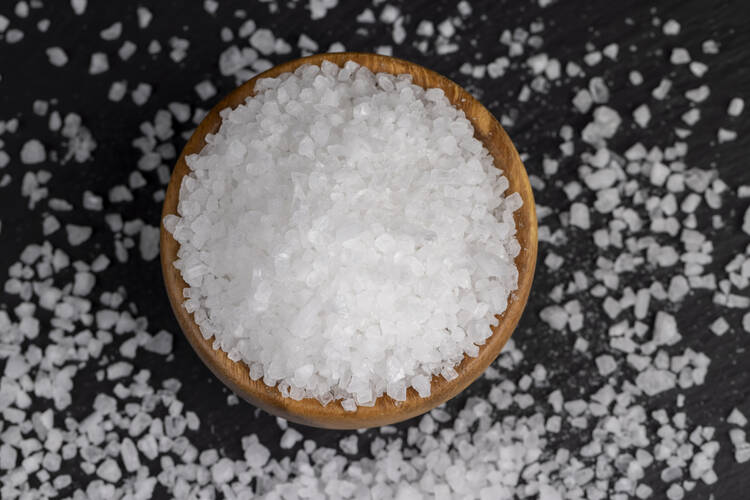A Reflection for Thursday of the Seventh Week in Ordinary Time
Find today readings here.
In her cookbook “Salt, Fat, Acid, Heat” Samin Nosrat posits that any chef who masters the balance of the four titular elements in their cooking will be well on the way to making any meal taste good. Salt “has a greater impact on flavor than any other ingredient,” she argues. Indeed, its impact on the world (inspiring whole history books) and our health (including warnings about its excessive use) is well documented. A bit too much or too little salt can make the difference between a good or bad meal, a preserved food or a rotten one.
Salt’s purifying and preservative qualities also mean that it is a useful symbol in Scripture, as we see in today’s Gospel. “Keep salt in yourselves and you will have peace with one another,” Jesus says. To be a follower of Jesus means taking on a spiritual life that continually refines us, helps us become holier, more ourselves, more deeply in relationship with God and others.
We are offered a juxtaposition of small, simple actions and severe, extreme ones. Offering a cup of water can bind us to Christ, but a foot that causes us to sin must be cut off. While not all these actions are meant to be literal, they invite us to think deeply about the causes of sin. What parts of ourselves lead us into temptation? Are we leading others further from God through our words or actions? How do we find just that balance of words and actions, prayers and deeds, sacrifice and abundance so that we may more confidently follow the path Christ lays out for us?








